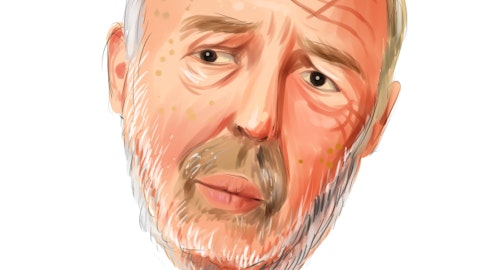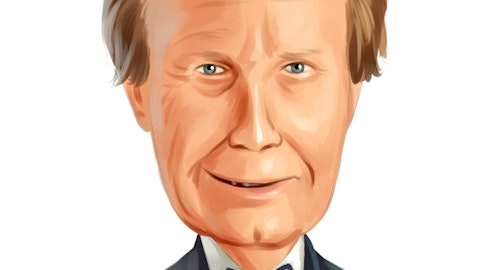Stuart Rose: Jordan, one other thing you should know and that people are — a lot of people are announcing CO2 projects in the ethanol industry. But all they are really doing is tapping into pipelines and they are not getting the bulk of the economic benefits. The economic benefits are up to for the years 2026, 2027 and 2028, $0.5 a gallon. We hope that — we expect to have 175 million gallon plant. So even if we get half of that, whatever we receive we will receive at all, whereas most of these companies happen into pipelines are dependent on the pipelines being built. They are announcing that they are doing CO2 capture, but they are really not doing their own CO2 capture. We are doing our own. We have been doing this, as Zafar mentioned, for four years and this is our project.
This is our shareholders’ project. It’s not something where we have to share the bulk of the revenues with the pipeline company. And the pipeline company, of course, then has a captive and has the ability and they will take a good percentage of the profits. In our case, all profits come to our shareholders, and again, we are a small company, 18 million shares, but we think it can be very, very significant. That’s our plan and that’s what we hope and expect.
Zafar Rizvi: Exactly. Yes. That’s the major difference between us and others. So — and also, I think, as Stuart mentioned, we were really trying to look at it four years ago when there was no 45Z at that time. 45Q was $50, now its $85. So all these benefits are really coming to see some productive.
Stuart Rose: They will accrue to our shareholders as Zafar is saying exactly.
Zafar Rizvi: Yeah.
Jordan Levy: I think that’s great commentary. I really appreciate it. I will leave it at that. Thanks.
Stuart Rose: Thanks, Jordan.
Operator: Our next question comes from Chris Sakai with Singular Research. Please proceed.
Chris Sakai: Hi. Good morning. Can you talk about
Stuart Rose: Good morning.
Chris Sakai: where you see the countries of largest export for 2023?
Zafar Rizvi: Export of ethanol, you mean?
Chris Sakai: Yes.
Zafar Rizvi: Okay. The Canada has exported — imported 502 million gallons and I think — and South Korea 156 million, Netherlands 99 million, total export for the — for 2020 was 1.3 billion gallons, compared to 2021 was 1.2 billion gallons and that was 9% higher than 2021.
Chris Sakai: Okay. Thanks. Are you seeing any increased cost in your — in rail due to all the recent train derailments?
Zafar Rizvi: Not really. I think the railroad always increase their rates, they basically it has monopoly on that track on the direction. So there’s really always increase their rates. But recently we have not seen it due to this situation, which is derailed and increase in the rate.
Chris Sakai: Okay. Thanks. Can you talk about the permitting process so far for the CCS?
Zafar Rizvi: I am sorry. Could you repeat your question, please?
Chris Sakai: How is the permitting processing — process going?





